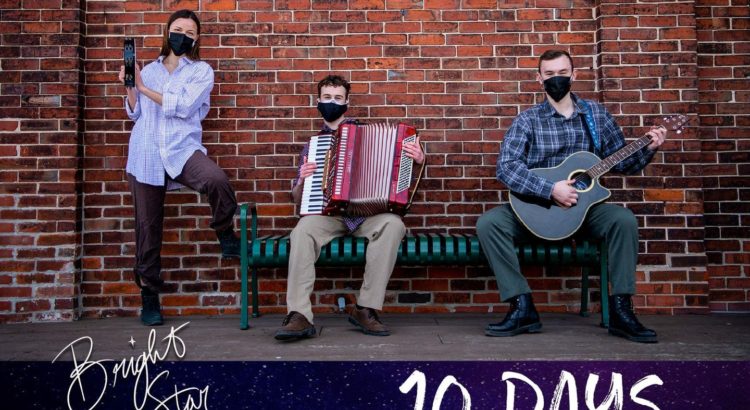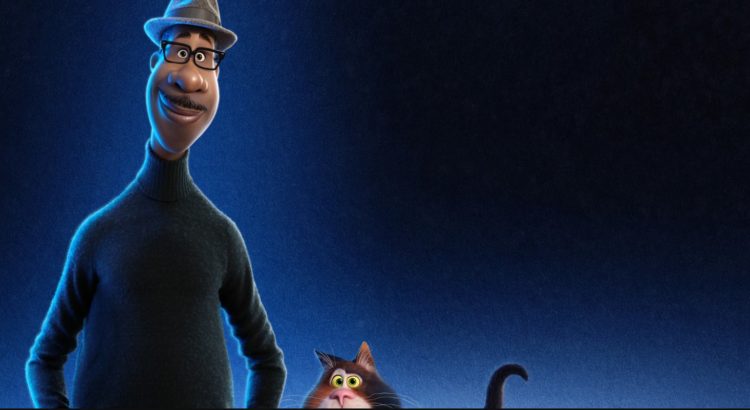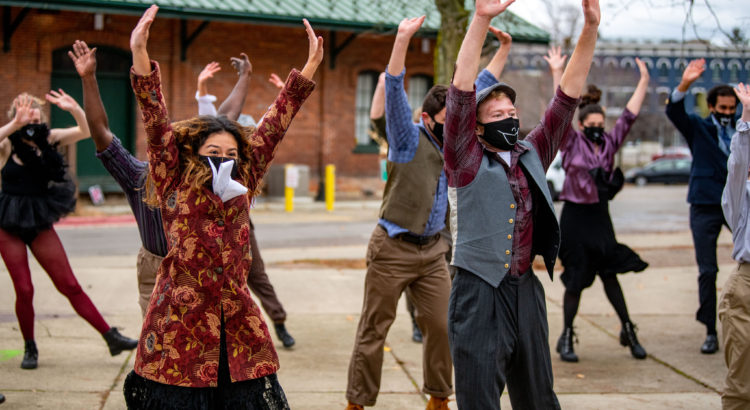As the show begins, I’m immediately drawn in by the sound of the music. Bright Star is defined by a musical genre that I had never heard in theater before: bluegrass. Bluegrass has its roots in old Irish, English, and Scottish dance tunes, as well as in African American jazz and blues. It became popular in American Appalachia in the mid-1900s, largely due to the influence of its namesake, Bill Monroe and the Blue Grass Boys. This band pioneered bluegrass’s characteristic sound of upbeat syncopated rhythms on acoustic stringed instruments. Bright Star is set in the Blue Ridge mountains in the 1920s and 1940s, right as bluegrass was flourishing in this region.
Bright Star features a combination of bluegrass music as well as a more traditional musical theater sound with a bluegrass influence. Together, these genres create a lively, energetic, and emotional backdrop for the musical’s story. The story follows one woman at two different times in her life. Through a series of flashbacks, her life story takes shape. We see how her older, sophisticated, professional self remembers the past through the eyes of her romantic, carefree, younger self. The musical revolves around themes of family, motherhood, and love. I appreciated that Bright Star features a strong female lead whom we see both as a successful literary editor and as a caring mother.
The cinematography of this production was detailed and beautiful. It was shot almost like a movie, which I was not expecting, but I ended up really enjoying it because the director and production crew took advantage of so many creative liberties. Bright Star was shot on multiple different sets, helping to facilitate seamless transitions between time periods and making the show very visually appealing. Additionally, the camerawork during the musical numbers was so fun. These numbers incorporated many zoomed-in shots of animated faces, hands clapping, and feet dancing that made me feel like I was right there with the actors. When you’re watching a show, you want to feel like you’re in the world of the characters. The engaging and playful choreography, in addition to the intimately-shot dialogue scenes, brought me into the world of the story.
 Some of my personal favorite parts of this production were the period costuming, the endearing song about motherhood, the brilliant sound editing, and how the staging and camerawork artfully distracted from the fact that all of the actors were social distanced from one another. The only thing I would have added was closed captioning, but overall, MUSKET once again has navigated this new and strange realm of virtual theater with soul and grace. Kudos to the cast and crew.
Some of my personal favorite parts of this production were the period costuming, the endearing song about motherhood, the brilliant sound editing, and how the staging and camerawork artfully distracted from the fact that all of the actors were social distanced from one another. The only thing I would have added was closed captioning, but overall, MUSKET once again has navigated this new and strange realm of virtual theater with soul and grace. Kudos to the cast and crew.












